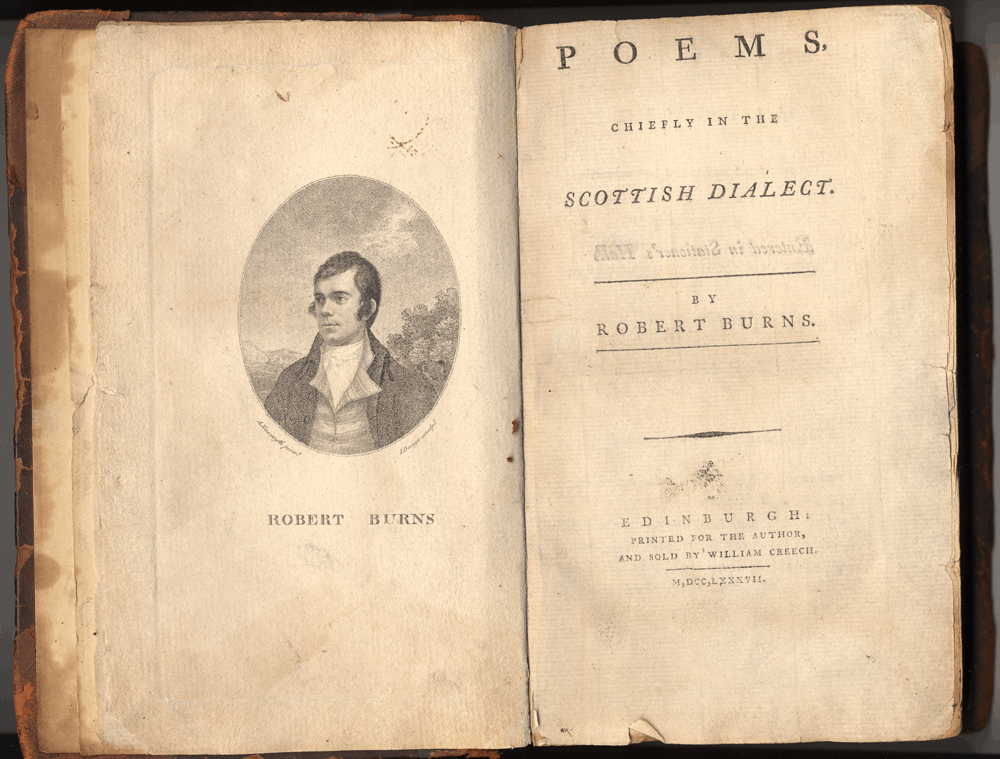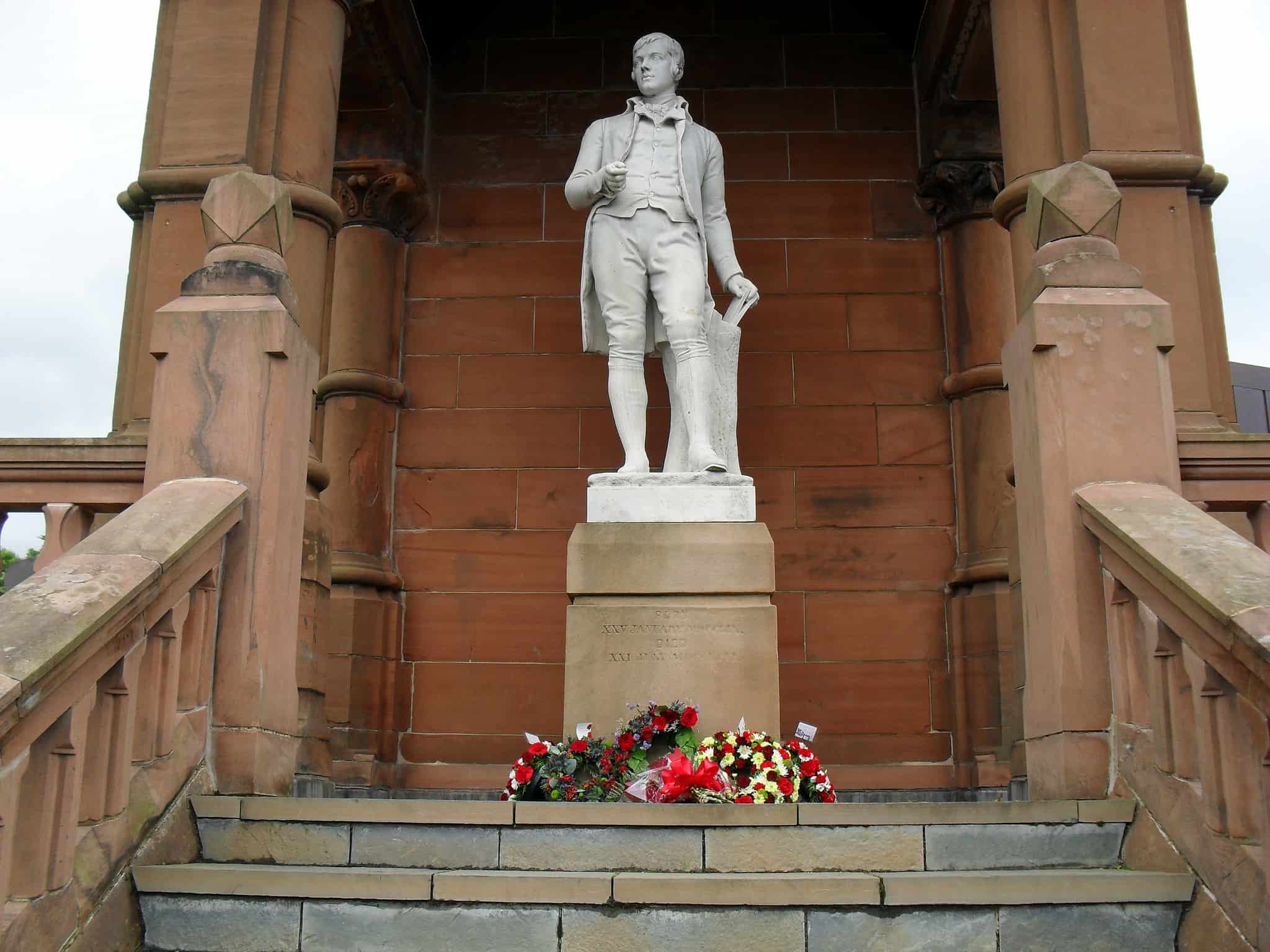Although they can be held at any time, most suppers take place around January 25, Burns’ birth date.
Born in the mid 1700s in rural poverty, Robert Burns spent his youth as a laborer with little formal schooling. His father was the chief source of his education and Burns periodically attended classes when the family could spare him from the farm. He wrote his first poem at the age of 15 inspired, not surprisingly, by a young woman. In 1775 he was sent to a tutor where he met another young lady who moved him to write two more pieces in her honor. After penning a few more poems for the ladies in his life, Burns began writing about the common things in life, using the common Scottish dialect. To raise money for passage to the West Indies, Burns collected his works and had them published. The Kilmarnock volume was a success and led to Burns’ fame throughout the country.
It is this humble beginning and connection to the people that keeps Burns in the hearts of Scots even today. Although he’s been dead for more than 200 years, he is still lauded as the national poet of Scotland, and many doubt that he will ever lose that honor. His depth of knowledge, diversity and knack for speaking directly to the heart resonates with 21st century readers as strongly as it did in the 18th century.
 https://www.flickr.com/photos/summonedbyfells/
https://www.flickr.com/photos/summonedbyfells/
With such a strong following it’s no wonder that there are yearly celebrations honoring Robert Burns, mainly in the form of a supper. Why a supper? It probably has a lot to do with his poem Address to a Haggis which honors the lowly meal, driven to high status in part due to this poem. Every Burns supper, be it formal or casual, serves a dish of haggis accompanied by a reading of passages of the poem. More formal suppers include a bagpipe serenade (often Is There for Honest Poverty, a song by Burns) as the haggis is brought in. The whole of Address to a Haggis is recited complete with sharpening the knife and cutting ‘wi’ ready slicht’ at the appropriate passages.
 https://www.flickr.com/photos/gertcha/
https://www.flickr.com/photos/gertcha/
An invitation to a formal Burns supper is somewhat of an honor, but throwing your own bash is easy. Burns’ poems can be easily found (there’s even an app for that) and the bagpipes are always optional. Most modern haggis is stuffed in sausage casing, but you may be able to hunt down a sheep’s stomach and make your own using the traditional ingredients of sheep’s pluck (heart, liver and lungs) mixed with oatmeal, onion and a bit of suet to bind it together. Spice to your own taste and simmer for about three hours. You can always fill up on the mashed turnips and potatoes if boiled sheep’s innards don’t quite appeal to you.
Following the meal there are usually a number of toasts (including one to the haggis) and some speeches honoring Burns and his poetry as well as a few to the lassies and ladies gathered around the table. The toasts are of course offered with Scotch Whiskey so you may either want to sip lightly during each, or pour yourself a hearty glassful to prepare for the next stage of the dinner – the singing.
 https://www.flickr.com/photos/dumfriesmuseum/
https://www.flickr.com/photos/dumfriesmuseum/
Burns penned a number of songs, and some of his pieces have been set to music. Guests are invited to perform a piece of their choosing, and reciting one of Burns’ poems instead of singing is perfectly acceptable. If you should find yourself at a Burns supper while in Scotland, be prepared. Foreign guests are almost always invited to sing something traditional from their own country.


